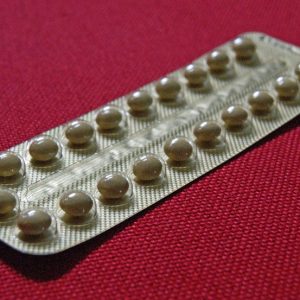
Probably one of the most common themes of this blog is that there seems to be an infinite number of reasons for hair loss. In the past, we have already introduced the concept of medication as a possible contributor to hair loss. Moreover this concept is probably a familiar one, with extreme hair loss often associated with extreme treatments including chemotherapy and radiation therapy. Maybe not as familiar however is that there are some commonly prescribed medications which have also been implicated in hair loss such as birth control.
Birth control pills obviously contain various combinations of hormones designed to prevent pregnancy. They have so many additional effects however that you probably know someone or may even have personal experience in using them for an alternate purpose from acne treatment to control of premenstrual symptoms. So how does this work? Most birth control pills contain some form of the hormones progesterone and estrogen. Each brand contains slightly different forms and combinations of these hormones. These differences can then either increase or decrease the likelihood of experiencing a particular side effect, such as either hair loss, or hair gain1.
For example, birth control pills that contain progesterone in the form of norethindrone or norgestrel are believed to increase the risk of hair loss2. Hormones naturally produced in the body called androgens are reported to induce pattern baldness in those with hair follicles sensitive to the condition. Norethindrone or norgestrel containing birth control can increase androgen levels, thus increasing the risk of female pattern baldness, especially in those with a genetic predisposition (estimated at roughly 40% of women3). Symptoms usually appear differently compared to male pattern baldness. Instead of a receding hairline, women may notice a more general thinning of their hair and a wider part on top of the head4.
If you are using the pill as a contraceptive and are experiencing symptoms of pattern hair loss, have a strong family history of pattern hair loss, or are concerned, talk to your doctor about options and your individual situation. And see the next article in this mini-series for birth control that can promote hair gain.
Article by: Dr. J.L. Carviel, PhD, Mediprobe Research Inc.
References
- Schindler AE. Antiandrogenic progestins for treatment of signs of androgenisation and hormonal contraception. Eur J Obstet Gynecol Reprod Biol. 2004 Feb 10;112(2):136–41.
- Teichmann AT. [Rationale for prescribing oral contraceptives]. Wien Med Wochenschr 1946. 1998;148(7):171–4.
- Santos Z, Avci P, Hamblin MR. Drug discovery for alopecia: gone today, hair tomorrow. Expert Opin Drug Discov. 2015 Mar;10(3):269–92.
- Dinh QQ, Sinclair R. Female pattern hair loss: Current treatment concepts. Clin Interv Aging. 2007 Jun;2(2):189–99.












